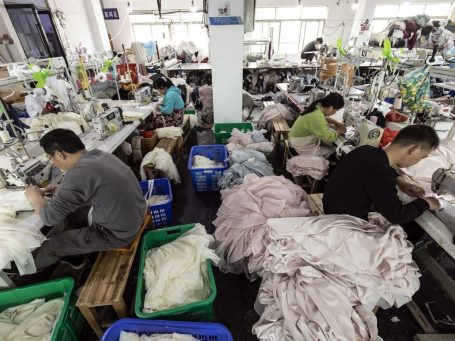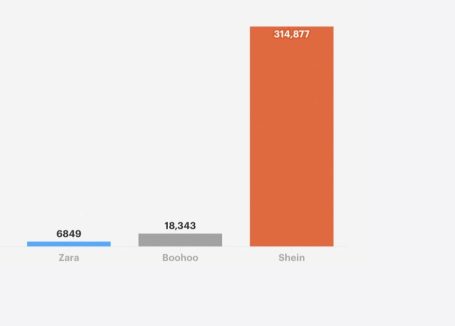What's wrong with Shein?
Shein is an ultra-fast fashion retailer that sells vast quantities of very cheap clothing, primarily to western consumers, at extraordinarily cheap prices. The firm is a pioneer of throwaway fashion, listing up to 6,000 new items on its website per day, at an average cost of just £7.90.
How is Shein able to offer such low prices? By exploiting its workers, ravaging the environment and avoiding tax.
By listing on the LSE, Shein would become a publicly traded company, which would mean that any investor would be able to buy the company’s shares, allowing the company to access more investment and grow even further. Shein faced intense resistance to listing in the US, but UK politicians have been trying to tempt the firm to list in London to give a boost to London’s financial services sector.
We have had enough of our politicians putting the interests of the City of London ahead of those of people and planet. It’s time to say no to companies that violate workers rights, exacerbate climate breakdown, and avoid taxes. It’s time to say no to Shein.
Shein's Labour Practices

Image credit: Qilai Shen/Bloomberg
- One Swiss NGO found that workers manufacturing Shein clothing were working 12 hour days, with one day off per month. When the NGO returned to the same supplier, a year after its initial investigation, it found that the workers were still working 75-hour weeks with no breaks.
- Researchers at Bloomberg found that the cotton used in Shein clothing was sourced from the Xinjiang region of China, where the Chinese state has been accused of ‘horrific abuses’ against the Uyghur people.
Shein's Environmental Impact

Image credit: Business of Fashion
- Shein lists thousands of new items of clothing on its website each day.
- Shein clothing is made of cheap, fossil-fuel derived fabrics like polyester, the production of which requires 70 million barrels of oil each year. These fabrics also contribute to the release of microplastics into our oceans, devastating marine life.
- One calculation of Shein’s environmental impact revealed that its emissions had increased by more than 50% in 2023, and it now emits more than some small countries.
Shein's Tax Affairs

Image credit: @PANOSPICTURES/PUBLICEYE
- Shein's business model also rests on avoiding tax. The company is able to minimize its costs, and maintain extremely low prices, by circumventing import and export taxes and shipping small packages directly to consumers.
Contact Us
If you'd like to learn more about the campaign or get involved, you can email us at saynotoshein@gmail.com
Please also follow us on Instagram for updates.
We need your consent to load the translations
We use a third-party service to translate the website content that may collect data about your activity. Please review the details in the privacy policy and accept the service to view the translations.